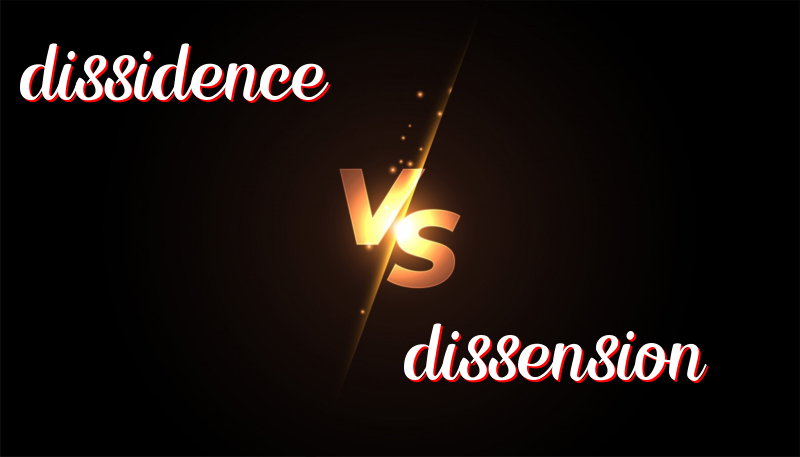Dissidence vs. Dissension: The Difference Without the Drama
Dissidence vs. Dissension: Simple Words to Know
History of the Words
The words “dissidence” and “dissension” both come from Latin. “Dissidence” comes from the Latin word “dissidentia,” which means disagreement or difference. “Dissension” comes from the Latin word “dissensio,” which also means disagreement or conflict.
How to Use Them
Dissidence means when people do not agree with the rules or ideas of a group or government. It is about standing against normal ways.
Dissension means a fight or conflict among a group of people. It is about arguing or not agreeing with each other in the same group.
Trick to Remember the Difference
Think of “dissidence” as “different ideas” from the main group. Think of “dissension” as “tension” or fighting within a group.
Examples of Using Dissidence
- There was much dissidence in the country against the new laws.
- The leader did not like any form of dissidence.
- Singing songs of freedom showed their dissidence.
- Dissidence was clear when the people protested.
- Writers often show dissidence in their works.
Examples of Using Dissension
- There was dissension in the team about the game plan.
- Dissension broke out at the meeting over the new policies.
- The debate caused dissension among the council members.
- Parents had dissension over the best school for their kids.
- Sometimes, dissension can lead to better ideas if handled well.
Summary
To sum up, “dissidence” means not agreeing with a group or government, while “dissension” means fighting or arguing within a group. Remember that dissidence is about being different, and dissension is about tension in a group.

Leave a Reply
You must be logged in to post a comment.